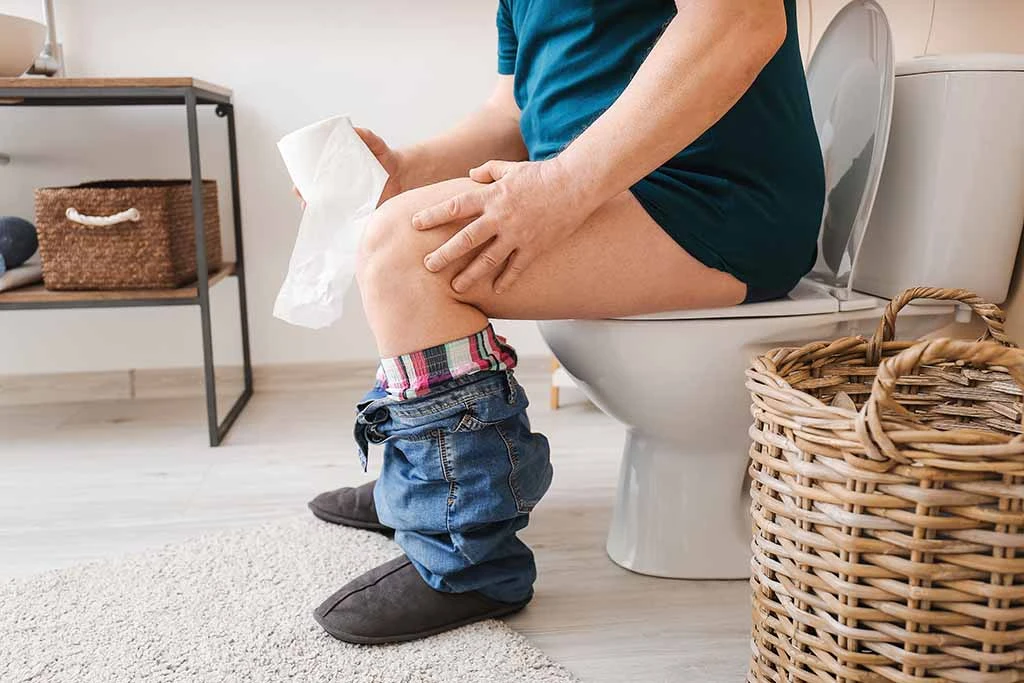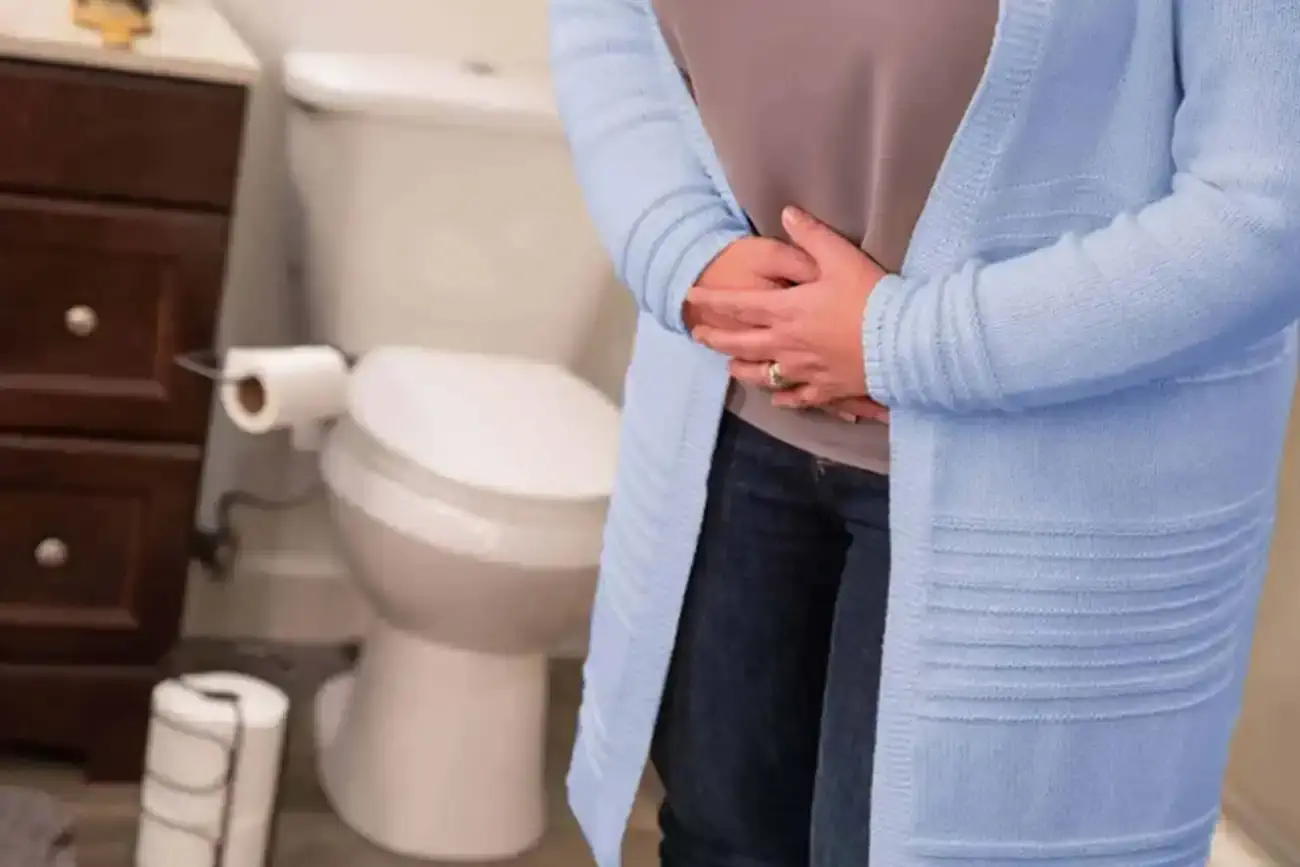
Proper Diet for Relieving Constipation in the Elderly
Do you know how to relieving constipation in the elderly? In this article from humanhealthmag, we want to explain the methods of eliminating constipation in the elderly. In general, constipation is one of the common problems in the elderly, which is more common in people over 65 years of age due to impaired digestive system function and organ failure. This problem causes difficulty in defecation, pain and discomfort, and may even disrupt the person’s daily activities.
Immediate treatment of constipation in the elderly is of particular importance, especially when this problem becomes severe constipation. Keep in mind that the right diet for constipation does not only mean the foods you should eat, even eliminating some foods is very important to solve this problem. But it is better to consult a gastroenterologist or nutritionist about choosing the right diet for constipation. Stay with us so that we can tell you the methods of treating this problem.
Diagnosing Severe Constipation in the Elderly
One of the most important points in relieving constipation in the elderly is its diagnosis. In order to be able to diagnose constipation in the elderly, you must be familiar with its symptoms. If you have at least two of these symptoms, you can say that you are constipated. These symptoms include:
- When you go to the bathroom, you feel that your intestines have not been completely emptied.
- The stool is very dry and is accompanied by severe pain during evacuation.
- Excessive pressure is applied to the intestines during defecation.
- You have less than two bowel movements during the week.
When you have these symptoms, you should see a doctor. Then, the doctor, considering the evaluation and examination of your physical and mental conditions, listening to your history, can make a decision regarding this disease and diagnose the presence of constipation. You can solve this problem with home remedies for senior constipation.
What Are the Causes of Constipation in the Elderly?
Before relieving constipation in the elderly, you should know how this problem occurs. Constipation is not a disease in itself. In fact, it is a type of functional disorder, originating from other diseases. Constipation in the elderly may be caused by underlying diseases such as heart disease, brain disease, diabetes, depression, thyroid, lazy bowel syndrome and Parkinson’s.

As time passes and people approach old age, they are susceptible to various diseases that require them to take medication to relieve them. The use of these medications leads to constipation in the elderly. Some of these medications include painkillers, antihistamines, antacids, anticonvulsants and neuropsychiatric medications. Other causes of constipation in the elderly include low mobility, prolonged sitting. Also, incorrect eating habits such as eliminating fibrous foods and liquids from the diet will cause constipation in the elderly.
What Is the Right Diet for Constipation?
To relieve constipation in the elderly, you should pay attention to your diet. Constipation can be occasional or chronic and can range from a sedentary lifestyle to digestive diseases such as irritable bowel syndrome. But in almost all cases of constipation, food is an important factor. A good constipation diet includes food sources that can help improve bowel movements, so that defecation becomes easier and less painful. On the other hand, a good constipation diet should eliminate some foods that are the cause of constipation. Most of the foods recommended in this diet can act as laxatives or natural stimulants.
| Diet | Main Features | Advantages | Disadvantages | Suitable for |
| High-fiber diet | Includes plenty of fruits, vegetables, whole grains, legumes, and nuts | Increases stool bulk, improves bowel movements, reduces risk of heart disease and diabetes | May cause bloating and gas, requires gradual increase in fiber intake | Most people with constipation |
| Diet containing probiotics | Includes yogurt, kefir, sauerkraut, kimchi, and other fermented foods | Improve intestinal flora, strengthen the immune system, reduce inflammation | May cause bloating and gas, may not be suitable for everyone | People with intestinal flora disorders |
| High-fluid diet | Includes water, natural juices, soups, and decaffeinated teas | Softening stools, improving digestion | Excessive fluid intake may cause the body’s electrolytes to become diluted | All people with constipation |
| Low-fat diet | Includes reduced intake of fatty and fried foods | Improves digestion, weight loss | May not be energizing enough, needs variety | People who have obesity or heart disease problems in addition to constipation |
Methods of Relieving Constipation in the Elderly
In this section, we will discuss the various solutions available for relieving constipation in the elderly.
- Eat high-fiber foods and ingredients
Add fiber to your diet by eating more high-fiber foods for elderly constipation, such as fresh fruits and vegetables, whether cooked or raw, and whole grains and legumes. Dried fruits such as apricots, prunes, and figs are high in fiber and very nutritious. Eating fruits and vegetables is very beneficial for treating constipation in the elderly. If your elderly person’s diet does not contain natural fiber, you may need to add a small amount of bran to cooked foods, grains, and fruits.
- Eat probiotics for treating constipation in the elderly
Eat probiotic foods or take probiotic supplements. Probiotics may help prevent chronic constipation. Research has shown that some people suffer from chronic constipation because their gut bacteria are out of balance. It seems that probiotic foods can help improve this balance and prevent or treat constipation in the elderly. These foods can also help treat constipation by producing lactic acid and short-chain fatty acids. Using these substances can improve bowel movements, make stool easier, and thus lead to the treatment of constipation in the elderly.
- Eat prunes
Prunes and prune juice are often used as a natural remedy for treating constipation in the elderly. In addition to fiber, prunes also contain sorbitol, a natural laxative. Studies have shown that prunes may be more effective than fiber. Prunes can be the simplest natural solution available to treat constipation in the elderly. The effective amount of prunes to treat constipation is about 50 grams (7 medium prunes) twice a day.
- Drink fluids, especially water
Make sure you drink enough fluids. Constipation can get worse without enough fluids. Drinking enough water can help with regular bowel movements. Be sure to talk to your doctor about how much water to drink. If you are regularly dehydrated, you may be chronically constipated. To prevent this, you should drink enough water.
- Drink caffeinated coffee
For some people, coffee can increase the urge to go to the bathroom and can help improve or treat constipation in older adults. Coffee stimulates the muscles in your digestive tract. In fact, caffeinated coffee can stimulate your intestines in the same way that a meal does. This effect is 60% stronger than drinking water and 23% stronger than drinking decaffeinated coffee. Coffee contains small amounts of soluble fiber, which helps prevent constipation by improving the balance of bacteria in your gut.

Exercise to Treat Constipation in the Elderly
One way to relieve constipation in the elderly is to exercise. Although exercising for the elderly may be a little difficult, they should also try to be active and do as much physical activity as possible. Exercise is also important for overall health.
The elderly should do things that make them move and be active. For example, go out for a walk. Find physical activities that they enjoy doing and make them part of their daily lives. Many studies show that physical activity causes more stool to pass and causes more bowel movements and more activity, which ultimately helps treat constipation in the elderly.
Some Techniques for Relieving Constipation in the Elderly
In addition to the methods mentioned above for relieving constipation in the elderly, following the following techniques can also help solve this problem:
- Cooking vegetables or grating fruits can solve the problem of constipation in the elderly. This helps the elderly to benefit from high-fiber foods. Fiber increases the volume of stool and makes it easier to pass.
- Some fruits are useful for treating constipation in the elderly and you can consume them safely. For example, grapes, due to their effective substance called pectin, make stools bulkier and easier to pass. Kiwi is one of the effective fruits in treating constipation in the elderly due to its high water and fiber content. Regular consumption of dates also prevents constipation. Fruits such as oranges and tangerines, due to their high vitamin C and fiber content, help improve the digestive system of the elderly and prevent them from developing digestive disorders.
- Excessive consumption of dairy products causes constipation.Do not take too many laxative pills; because the pills prevent normal bowel movements from occurring properly and cause sluggish bowels.
- Avoid excessive consumption of tea and coffee. If you are used to drinking tea, be sure to drink it sparingly.
- Drinking a glass of warm milk at bedtime is recommended. Drinking warm milk helps the intestines work better in the elderly.
- Avoid consuming fast food, fried and processed foods.
- Get into the habit of going to the toilet at a specific time, even if you do not feel like defecating. If you follow this method for a while, the intestines will empty more regularly.
- Eat slowly and chew your food thoroughly.
- When traveling, try to use the bathroom without delay. Some elderly people refuse to use public bathrooms when traveling for various reasons, such as the cleanliness of the bathrooms, which can cause constipation in the elderly.
Concluding Remarks
To relieve constipation in the elderly, try increasing your intake of foods such as fruits, vegetables, whole grains, nuts, seeds, beans, legumes, and herbal teas. Increase your intake gradually, especially with beans and legumes, to avoid gas and bloating. A diet that is appropriate for constipation can often relieve symptoms and improve your condition. However, it is best to consult with a dietitian or gastroenterologist for a specific diet for constipation.
We’re curious to hear your thoughts! What’s your take on this topic? Comment below and join the conversation; your opinion could spark new ideas!

FAQs
When Should we Start Treating Constipation?
When the bowel movement process of the elderly is out of its regular course, you should think about treating it.
What is the Priority Diet for Treating Constipation in the Elderly?
Drinking plenty of fluids, eating fiber-rich foods, and exercising. To a large extent, these three things can relieve constipation in the elderly.
When Should we See a Doctor for Treating Constipation in the Elderly?
If your constipation does not improve with beneficial foods and it lasts a long time, it is definitely recommended that you see a specialist.
Does Drinking Coffee Help Relieve Constipation?
For some people, drinking caffeinated coffee causes bowel movements because its effect is much greater than water and decaffeinated coffee. It is recommended that you do this on an empty stomach.
